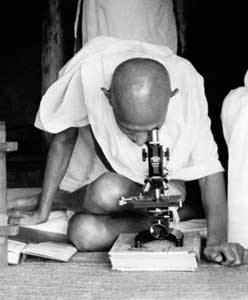HIV meets diabetes meets HIV
In the early 1990s, I never believed it would happen. But in mid-February 2007, I heard a cardiologist talking about the cardiovascular effects of HIV, who then put his talk in context by casually saying, “Even so, I’d choose to have HIV over having diabetes.” The doctors-in-training listening nodded in agreement. They probably didn’t remember that people used to talk about comparing HIV to diabetes like it was an impossible dream.
In 1992, Bob Rafsky, a person with AIDS and a member of the activist group ACT UP, wrote in the New York Times, “It's always possible we'll win. The drug, or drugs, that will turn AIDS into a chronic illness like diabetes will finally be discovered.” But, he wrote, “it's not likely, at least not in time for me.” Rafsky died the next year, in 1993.
Just three years later, starting in 1996, the kinds of drugs Rafsky had hoped for arrived in wealthy countries like the United States, used in combinations of medicines that together became more than the sum of their parts. Along with other improvements in HIV care, that allowed people to live with HIV for much longer periods of time than before.
Even back in 1996 and 1997, people were starting to say that living with HIV could finally be like living with diabetes, a difficult but manageable chronic disease. This didn't mean that it would be easy.
With modern medical strategies, the most common and serious effects of diabetes aren’t short term crises of sugar levels, but the effects of long-term damage to blood vessels: problems like stroke, heart attacks, kidney failure, blindness, nerve problems, and foot and leg infections that can sometimes require amputation.
Avoiding these problems over the long-term requires constant vigilance. In fact, as HIV medications become easier and simpler to take, sticking to them is often less complicated than sticking to diabetes regimens.
Especially early on, most Americans with HIV got the virus either from unprotected gay sex or sharing needles, which is part of how HIV got the stigma that it still has today. By contrast, Type I diabetes often comes in childhood, as a result of an autoimmune problem; no one blames people with Type I diabetes for their disease.
But stigma does influence how society responds to the much more common kind of diabetes, called Type II diabetes. Whether people get Type II diabetes has a lot to do with genetics. But higher amounts of body fat are associated with higher risk for Type II diabetes. That’s political poison for mobilizing a response to Type II diabetes, because Americans tend to misunderstand why people gain weight, think of fat as a kind of moral shame, and vastly underestimate the difficulty of losing weight and keeping it off. And so society can distance itself from Type II diabetes, by blaming the disease on the people who have it.
When AIDS was a more lethal disease in the US than it is now, it inspired intense fear and stigma and discrimination. In the late 1980s and early 1990s, people with AIDS and their allies, including activists like Bob Rafsky, began speaking against that fear and demanding the solidarity of others. They won the support of many; red ribbons became de rigeur for celebrities for a while. That kind of activism (both the angry kind and the syrupy Oscar ceremony kind) helped bring the day that HIV infection became more like diabetes.
Now, as Type II diabetes becomes more common, and also stigmatized for its increasingly well-publicized association with fat, the new challenge might be for Type II diabetes to become more like HIV—in which people with the disease and their allies stand up to demand that the society get over its prejudices, and start paying more attention.






